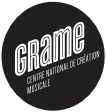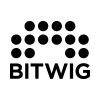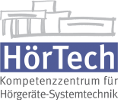Conference Schedule
During the conference, live A/V streams are available for the main track: High Quality and Low Bandwidth.
Remote participants are invited to join #lac2015 on irc.freenode.net, to be able to take part in the discussions, ask questions, and get technical assistance in case of stream problems.
Conference Material can be found on the Download Page.
Timetable Format: Plain List | Table | iCal | Printable Version
All times are CEST = UTC+2
Workshop
10:00 Publishing plugins on the MOD Cloud - Workshop(120 min) MOD Team » Location: Workshop II (P5)
One of the most important components of the MOD cloud services is the LV2 plugin store. With it developers will be able to publish their plugins to both the devices (MOD Duo and MOD Quadra) as for the desktop users.
This workshop is intended to explain the proposed system in detail with a hands-on approach, covering the whole publishing process, including:
- creating a request for publishing
- source code verification
- plugin building for
- Intel Atom (MOD Quadra)
- ARMv7 (MOD Duo)
- Generic x86 (MOD Desktop App)
- Generic amd64
- bundle generation, verification and publishing
MOD Team members from all elements of the pipeline will be present to explain technical details and collect feedback and demands from the developers.
The licensing model propositions will also be discussed, with a special care to the distinctions on commercial x non-comercial and open-source x non-open-source.
Presenters: Alexandre Cunha, Luis Fagundes, Filipe Coelho , Bruno Gola and Ricardo Crudo.
This workshop is intended to explain the proposed system in detail with a hands-on approach, covering the whole publishing process, including:
- creating a request for publishing
- source code verification
- plugin building for
- Intel Atom (MOD Quadra)
- ARMv7 (MOD Duo)
- Generic x86 (MOD Desktop App)
- Generic amd64
- bundle generation, verification and publishing
MOD Team members from all elements of the pipeline will be present to explain technical details and collect feedback and demands from the developers.
The licensing model propositions will also be discussed, with a special care to the distinctions on commercial x non-comercial and open-source x non-open-source.
Presenters: Alexandre Cunha, Luis Fagundes, Filipe Coelho , Bruno Gola and Ricardo Crudo.
Day 2 - Friday, April/10
Workshop
14:45 Building HTML plugin interfaces for the MOD Web GUI - Workshop(90 min) MOD Team » Location: Workshop II (P5)
The remote GUI offered by the MOD platform is all based in web technologies - HTML, CSS and Javascript – and is implemented as an LV2 extension. This workshop will cover the details of the system implementation and the steps required to build a MOD GUI for an LV2 plugin. The MOD SDK can provide a basic interface very quickly and will be used as a stating point. From there, some of the possible further customizations will be explained. Also a discussion will be made regarding extending the plugins GUIs with widgets.
Presenters: Luis Fagundes, Bruno Gola and Filipe Coelho
Presenters: Luis Fagundes, Bruno Gola and Filipe Coelho
Day 3 - Saturday, April/11
Workshop
10:00 Building custom hardware controllers using the chain controller interface and the Arduino microcontroller - Workshop(120 min) MOD Team » Location: Workshop II (P5)
MOD users, both of devices as of desktops, can easily create external "real life" hardware controllers for their plugins using the Control Chain interface. It is an LV2 ControlPort oriented protocol that has an Arduino shield and a Library for the Arduino IDE.
This workshop will guide the attendees on all steps necessary to create a working controller using practical existing examples. Both the electronic as the coding areas will be covered.
Presenters: Ricardo Crudo and Lucas Takejame
This workshop will guide the attendees on all steps necessary to create a working controller using practical existing examples. Both the electronic as the coding areas will be covered.
Presenters: Ricardo Crudo and Lucas Takejame
The schedule is a major guideline. There is no guarantee events will take place at the announced timeslot.














